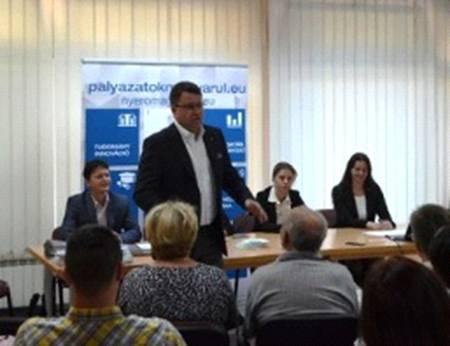
Project partner:
Hungarian Development Centre
The aim of the project:
Hungary, as a neighbouring state and the kin-state of the Hungarian minority living in Serbia devotes special attention to the Euro-Atlantic integration of Serbia. Because of this, the Vojvodina Hungarian community can fulfil a bridging role in Serbia’s EU accession process. For the community to use this advantage and come out of these processes as a winner, it has to take an active part in them, proportionally to its strength. For this, knowledge and experience are needed. The Bíró Károly Foundation aims at encouraging the acquisition of this knowledge and experience with every possible means.
The aim of the project is to start a training of professionals who know the EU project system and who would later be able to use the widening number of direct project opportunities from Brussels in Serbia and who can successfully apply for funding Vojvodina Hungarian institutions, schools, enterprises and non-governmental organizations. With this, apart from the supports of the kin-state, a new pillar will appear in financing the community, which can serve as a base for not only remaining in the region, but also developing here.
Activities:
Based on the framework agreement signed with the Hungarian Development Centre, the Foundation organized a three-phased series of lectures in Subotica, Senta and Novi Sad. At the end of the series of lectures, the participants filled in a test. The most successful ones were invited to the training of the Hungarian Development Centre, held in two parts in June and July in Dobogókő.
Results:
The Bíró Károly Foundation managed to delegate around 20 persons to the trainings. On the three-day-long training, the participants got acquainted with the direct resources from Brussels, their characteristics, and they received directions and suggestions for their use. The greatest achievement of the training is considered to be that the participants could establish active professional relationships with others from all the areas of the Carpathian bases where Hungarians live. This would be of great assistance to them when planning large projects that require partnerships from several countries.

